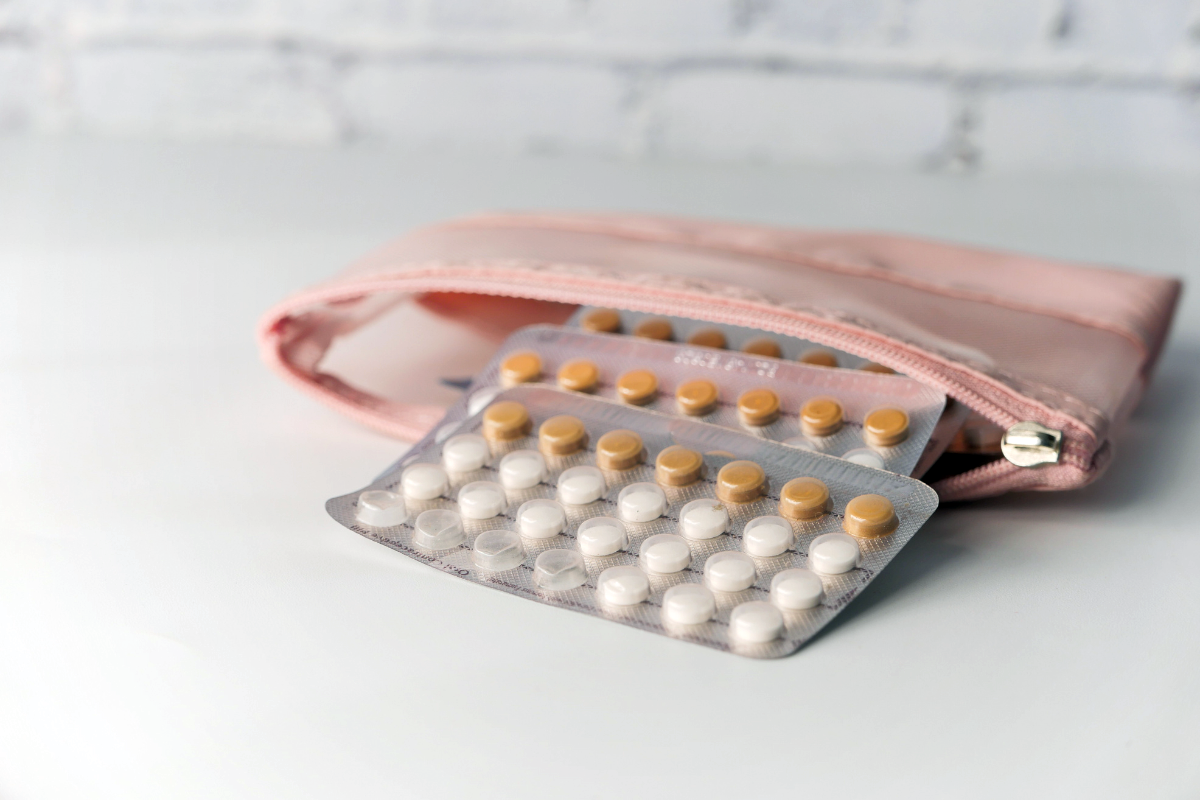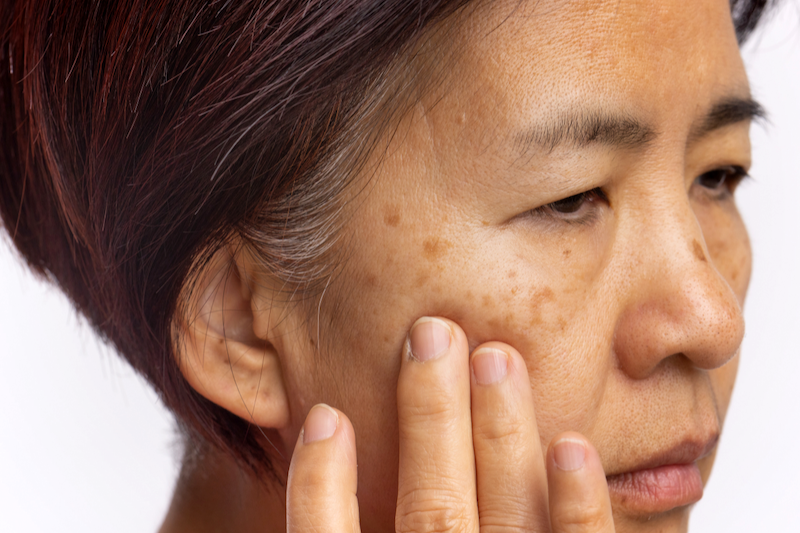When it comes to treating perimenopausal symptoms, the question I get asked more than any other by my patients and the readers of Hot Flash is “Which alternative treatments really work?” With the uptick in discussion about menopause in recent years, there has been lots of information about estrogen for treating perimenopausal symptoms. And while the data often focuses on classic menopause symptoms such as hot flushes and night sweats, there is a growing recognition that those are not the only symptoms that affect women’s quality of life during the perimenopausal years.
I am reminded daily that there is no one-size-fits-all solution to perimenopausal symptoms. Much of the literature regarding supplements focuses on phytoestrogens — estrogen-like substances that naturally occur in plants, such as soybean plants. So I was intrigued when I came across a recent study in the journal Menopause exploring the benefits of cinnamon to treat menopause symptoms. Could cinnamon be one more tool in our toolbox to treat perimenopausal symptoms?
Why cinnamon?
When you think of cinnamon, you are probably imagining the brown powder used to spice up your coffee or cookies, or the woody curl sometimes tossed into simmering ciders. But when used in a medicinal way, the dose is much higher — usually 1 gram, or roughly half a teaspoon. Cinnamon comes from the bark of certain trees in the laurel family. It has been used in Eastern medicine to treat health issues such as circulation and digestion for thousands of years.
We know that cinnamon contains a number of compounds that act on our cells. Researchers posit that cinnamon may decrease inflammation throughout the body that can lead to a whole host of health problems and symptoms, including symptoms of menopause. Prior to the current study, a handful of studies found that cinnamon reduced menopause symptoms, but those studies often used symptom scales and did not report which specific symptoms were reduced when participants consumed cinnamon.

What does the data say?
In the recently published study, researchers randomized 60 women to receive either a capsule containing 1 gram of cinnamon powder or a capsule containing 1 gram of starch powder. They surveyed the women regarding their menopause symptoms before and after taking the capsules for 60 days. The study participants tolerated the cinnamon capsules well, though one participant in the cinnamon group withdrew from the study before it was over because the capsules were too large.
The authors found that the women who received the cinnamon capsules reduced their menopause symptom scores by nearly four points, from 17.83 to 13.95. The control group also had a reduction in their scores of 1.2 points, from 17.80 to 16.64, but the difference between the two groups was statistically significant. This suggests that cinnamon was effective in reducing menopausal symptoms.
The authors went a step further than researchers in previous studies and calculated symptom scores in three different categories: physical symptoms such as hot flushes and sleep disruption; psychological symptoms such as depression, anxiety, and irritability; and urogenital symptoms such as vaginal dryness and sexual dysfunction. When they analyzed the scores by subgroup, only psychological symptom scores improved significantly in the group taking cinnamon compared with the placebo group. Physical symptom scores and urogenital symptom scores were not improved in the women taking cinnamon capsules compared with the placebo group. This suggests that cinnamon may be particularly effective for improving mood changes in menopause, but not hot flushes, night sweats, or urinary complaints.
Should you add cinnamon to your daily routine?
There are a number of things I like about this study. It is a blinded randomized controlled trial, meaning participants were randomly assigned to receive cinnamon or placebo capsules and neither the participants nor the researchers knew which patients were in which group. This helps us to be more confident that the reduction in menopause symptom scores is due to the cinnamon. And we get a good sense of which types of menopause symptoms cinnamon seems to improve, which is a new finding in the literature. Additionally, there are possible mechanisms through which cinnamon may be acting in the body to reduce those symptoms.
But before I start to apply new data from a study like this one to my practice, I ask myself the question “Does this apply to my patients?” In this case, the answer is that it probably applies to some of my patients and some of you. But which ones? To answer this question, we need to look at who the study participants were.
The study is small, just 60 women. The authors do not include information on the participants’ race or ethnicity in the paper, but the trial was conducted in four health-care centers in Hamadan, Iran, so this may be a fairly homogeneous group of women, and thus we may not be able to apply the results to women of all ethnicities.
The women invited to participate in the study all had natural menopause and had had their last menstrual period one to three years before they were enrolled. Many of my patients are in perimenopause but are still having periods. Some have had surgical menopause. We cannot know from this study whether cinnamon will improve symptoms in women who are perimenopausal or have had surgical menopause.
The authors do report the women’s education status and economic status. As a group, they have much less education than the average American woman. About half of the participants are illiterate or have only an elementary education. Additionally, half of the participants are categorized as having low economic status.
This is important because evidence from longitudinal studies, such as the Study of Women’s Health Across the Nation, indicates that women with less education and low socioeconomic status are at increased risk of psychological symptoms in perimenopause. This suggests that many of the participants in the study were at increased risk of psychological symptoms in menopause. Perhaps that is one reason the authors found such a strong effect on psychological symptoms.
Finally, it is important to note the source of the cinnamon and the dose used. The researchers in this study used cinnamon that was ground by their pharmacists after testing the bark to confirm it was indeed cinnamon. The cinnamon in your spice rack is regulated as a food, not a medication, so it is difficult to know if that cinnamon would have the same effect as the cinnamon used in the trial. The dose they used was 1 gram, which is about half a teaspoon of cinnamon. That is definitely more than the sprinkling on top of your cappuccino but not a prohibitively large dose, though the authors note that some prospective participants declined to participate due to the size of the capsules needed to hold the 1-gram dose of cinnamon.
Ultimately, cinnamon may be an appropriate addition to some women’s treatment regimen for her menopause symptoms, especially if those symptoms are mild mood symptoms, but it still may be difficult to know if the cinnamon she is taking will have an effect, since it is not regulated as a medication.
The bottom line
- A recent randomized controlled trial suggests that cinnamon may significantly improve menopause symptoms, particularly psychological symptoms such as depression, anxiety, and irritability.
- The participants in the study were at high risk for psychological symptoms of menopause due to low education level and low economic status. The results of this study may not be applicable to women who are not at high risk for psychological symptoms.
- It is difficult to know whether cinnamon commonly available to us in the grocery store would have the same effect as the cinnamon in the trial because cinnamon is regulated as a food, not a medication, and may vary in quality.














Log in
Do we need to be concerned about the elevated lead levels that the FDA has warned of in most of the US cinnamon supply?
Also worth remembering that the “cinnamon challenge” taught us that trying to swallow powdered cinnamon straight can be dangerous! You’d most likely want to mix it in with something before consuming that much!